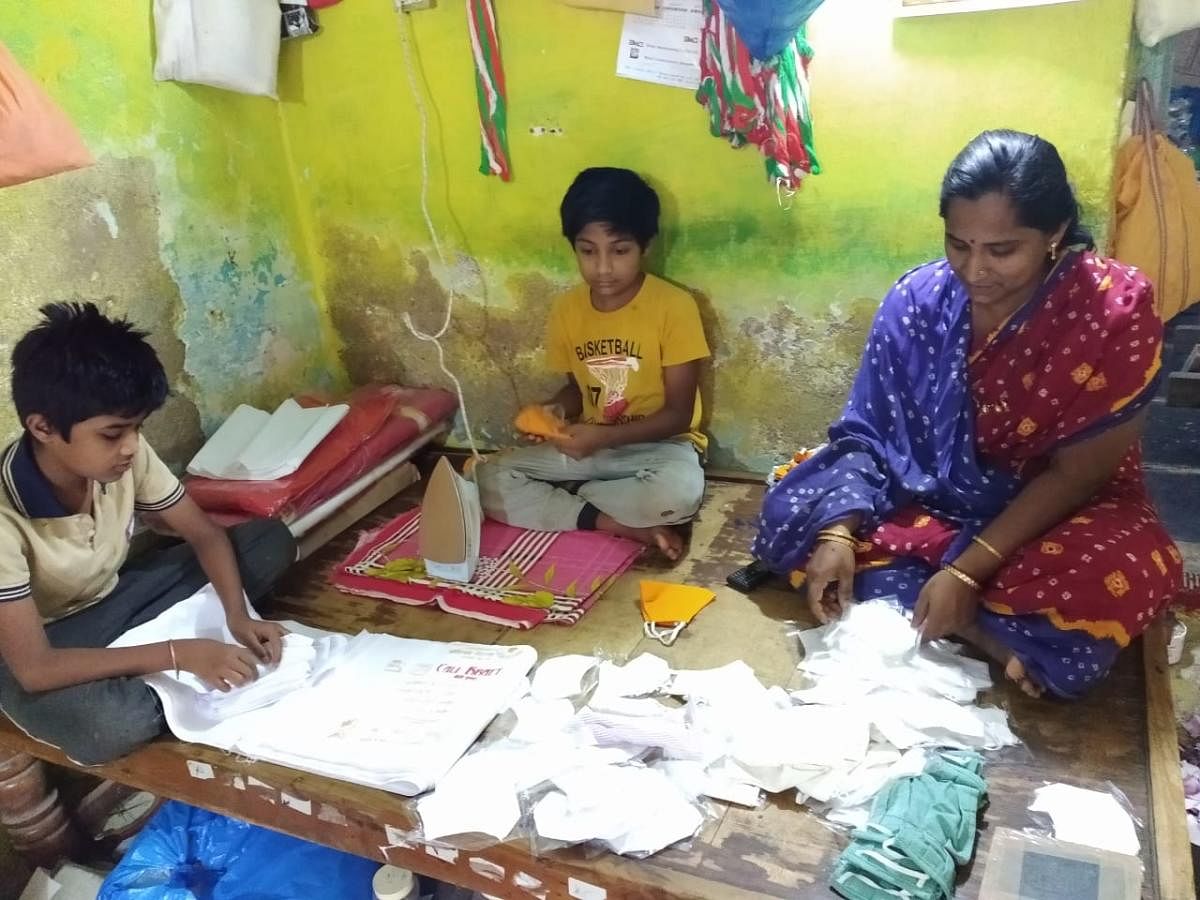
When the lockdown hit last year, 45-year-old Sneha who used to work as a small-time tailor was out of work and lost her means of livelihood. With resources running out, she approached Raghavendra Mutalikdesai for a hand loan of Rs 1,500 to pay her house rent.
Such helplessness moved Raghavendra, founder and curator of R K Khadi Gramudyog and Education Society in Hubballi. In the meantime, he lost one of his friends to Covid-19. This left him thinking of ways to support their livelihoods, and boost their morale. And without wasting much time, he came up with a plan to prepare and sell masks made of khadi.
He brought some ten sewing machines and gave it to women like Sneha and taught them to sew masks which were essential to fight Covid infection. He looked after designing, cutting, quality control and marketing of these unique masks while his wife and children also helped him. The women stitched these masks at their homes and delivered it to him on time.
These khadi masks got a good response in the first wave, and the demand rose with the spike in the cases in the second wave.
"Until now, we have sold around 2.25 lakh khadi masks. We usually work on bulk orders and sell it at a subsidised rate of Rs 8 to Rs 10 per mask. This does not fetch us good profit but helps sustain livelihoods of around eight to ten families which are on board with me," says Raghavendra adding that these masks also help in promoting khadi.
Their orders mainly came from government departments like the PF office, Railway unions, police, and NGOs in Hyderabad, Mangaluru, Bengaluru, Solapur and other cities.
Safe and eco-friendly
Raghavendra said that the double and triple layer khadi masks made by them are not only washable and reusable but also bio-degradable and sustainable.
They use hand-spun and hand-woven cotton fabric which are bleached and dyed using natural colours. This makes the masks more eco-friendly and skin-friendly. It is then cured to remove any dust and moisture and packed.
They make four types (designs) of masks including for kids, and in seven to eight colours. They also screen print the name of the NGOs or the department on the masks if the customer asks for it.
Khadi never disappoints
"Khadi has never disappointed me. Though the demand for khadi products like uniforms, shirts, political party flags and others went down drastically the previous year, it rescued us in the time of crisis in the form of masks. People prefer khadi mask over other cotton mask due to the nature of the fabric and also the patriotism associated with it," adds Raghavendra.
Prior to setting up of R K Khadi Gramudyog and Education Society in Hubballi for the welfare of khadi workers nearly three years back, Raghavendra worked as a production manager for three decades with Karnataka Khadi Gramodyog Samyukta Sangh at Bengeri in Hubballi, known for making the Indian flag. It was this experience that helped him come up with quality masks and marketing it.
"Lockdown came upon us with a bang. I used to work as a tailor with a khadi unit and my husband as an autodriver. But suddenly, we became jobless and were stripped of income. We had two children to feed. In such a condition, it was khadi masks which came as silver lining. Now, we stitch around 100 masks per day and earn at least a modest living," said Suman, who has been associated with the effort since the beginning of the pandemic.
Social worker Sadanand Danganavar whose NGO had ordered around 5,000 khadi masks from Mutalikdesai said that they had earlier purchased products from Mutalikdesai and were well-aware of the quality of khadi products produced by him. So, Danganavar ordered masks from him which were further distributed among vegetable sellers, labourers, police.